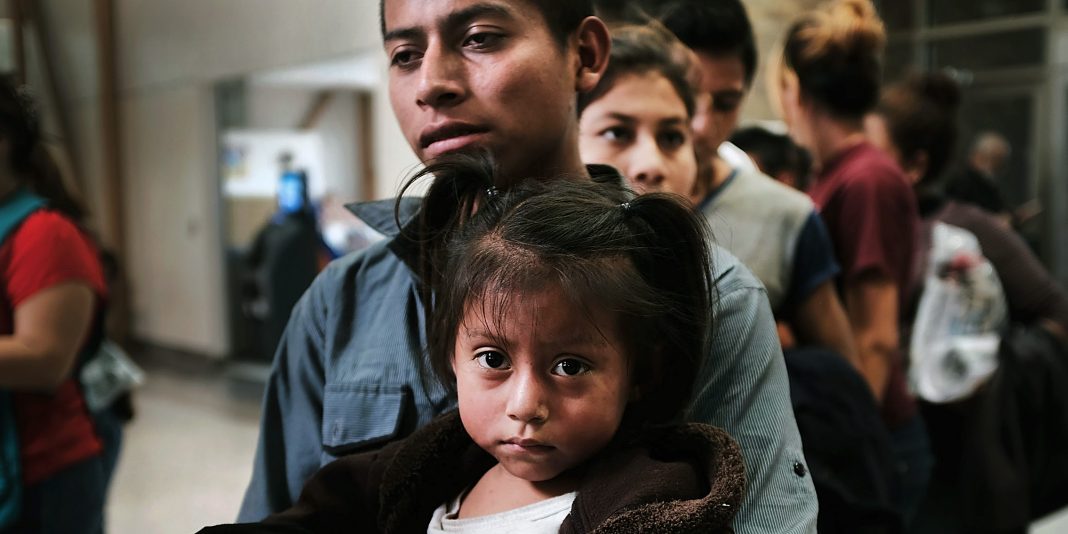America’s Racist, Xenophobic, and Highly Specific Fear of Haiti
Introduction:
The recent presidential debate brought attention to the issue of anti-immigrant sentiments, particularly towards Haitians, in Springfield, Ohio. Former President Donald Trump made derogatory comments about Haitian immigrants, perpetuating harmful stereotypes. This article explores the long history of discrimination against Black immigrants, specifically Haitians, in the United States. It delves into the roots of these prejudices, the impact of Trump’s comments, and the concerns of experts and advocates.
The Legacy of Discrimination:
The fear and discrimination against Haitians in the United States can be traced back to the early 1800s when slaveholding states in the American South expressed concerns about enslaved Haitians leading a rebellion. This fear of “the Black Republic” persisted throughout history. The United States military occupied Haiti from 1915 to 1934, implementing a system of racial violence and colorism mirroring Jim Crow laws. Negative stereotypes about Haiti as a “voodoo and backwards, uncivilized Black country” further perpetuated these prejudices.
Trump’s Comments and the Harm They Cause:
Trump’s recent comments about Haitian immigrants in Springfield have raised concerns about physical harm, job loss, criminalization, and negative mental health effects. These concerns are not new but are rooted in a long history of discrimination against Black immigrants and people from Haiti. Experts argue that Trump’s remarks are not solely his own but reflect the narratives and stories that the United States has told about Black people throughout its history.
Historical Precedents of Discrimination:
The discrimination against Haitians did not begin with Trump. In the late 1970s and early 1980s, President Jimmy Carter’s administration implemented the Haitian Program, incarcerating Haitian immigrants and denying them permission to work. Ronald Reagan continued this discriminatory treatment, turning away Haitian immigrants while showing leniency towards Cuban immigrants. Haitians were also targeted during the HIV/AIDS epidemic, labeled as carriers of the disease.
Incidents of Violence and Dehumanization:
Instances of anti-Haitian police violence, such as the attacks on Abner Louima and the killing of Patrick Dorismond, highlight the systemic racism faced by Haitian immigrants in the United States. More recently, the mistreatment of Haitians and other Black migrants by Border Patrol agents in Del Rio, Texas, further demonstrates the dehumanization and violence they face.
The Biden Administration and the Concerns Ahead:
While the Biden administration has granted Temporary Protection Status to Haitians already in the United States, experts worry that Trump’s comments can further victimize Haitians and other Black immigrants. The dehumanization of these communities can lead to violence, as seen in the Atlanta spa shootings. Advocates call for Vice President Kamala Harris to condemn Trump’s remarks more directly and express disappointment in her lack of response during the debate.
The Impact on Local Communities:
In Springfield, Ohio, hate against Haitian immigrants escalated after a car accident involving a Haitian man without a valid driver’s license resulted in the death of an 11-year-old boy. Some community members used this incident to blame the Haitian population for other issues, exacerbating tensions. Local residents, like Tracy Paschke-Johannes, have taken to social media to counter these negative narratives and highlight the positive contributions of Haitian immigrants to their community.
Conclusion:
The history of discrimination against Haitians in the United States is deeply rooted and continues to impact the lives of Black immigrants. Trump’s comments during the presidential debate only serve to perpetuate harmful stereotypes and further marginalize these communities. It is crucial for leaders like Vice President Kamala Harris to condemn such remarks and stand against racism and xenophobia. By challenging these narratives and promoting inclusivity, communities can work towards a more equitable and accepting society.


